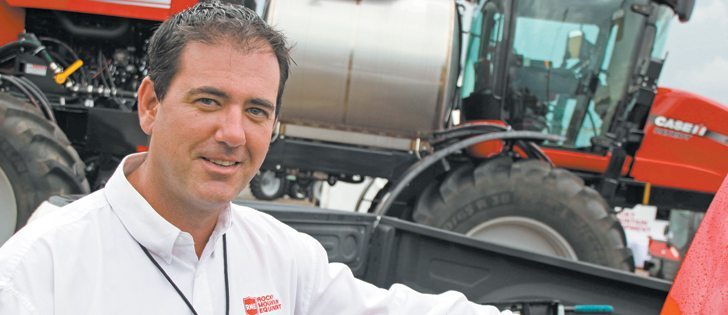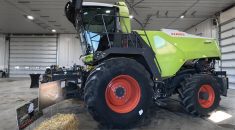Machinery dealers lobby for skilled workers | More openings sought for agricultural mechanic technicians
REGINA — The business of fixing farm machinery in Saskatchewan is getting an overhaul.
The industry says machinery dealers across Western Canada would employ 1,000 more mechanics today if they could get them.
The shortage is causing business issues for dealers and service delays for producers.
“There are dealers that are not building or expanding in their dealerships because of the shortage,” said John Schmeiser of the Canada West Equipment Dealers Association.
“Skilled labour is a real issue for our members and it has been one of their issues for a while,” he said while attending the Agricultural Manufacturers of Canada annual meeting in Regina last week.
Read Also

Soybean market still figuring out implications of China-U.S. pact
Soybean futures had a muted reaction to the U.S. trade deal with China as the market tries to figure out the nuances of the deal.
Farm machinery dealers have been lobbying provincial governments to increase the numbers of student training seats in their post-secondary schools.
An announcement about an imminent expansion of the Saskatchewan Institute of Applied Science and Technology’s agricultural mechanic technician certificate training program was expected this week.
“We are working with the government to fund more training opportunities and are very pleased that they have listened and responded,” said Schmeiser.
Saskatchewan will expand the number of opportunities to train agricultural mechanics through its vocational post-secondary schools beginning next year.
CWEDA has polled its membership and found a need for 450 mechanics and parts persons in Saskatchewan alone.
“We will be paying half and the government the other half, and we should be able to clear up the waiting list that SIAST has for students wanting into the certificate program,” said Schmeiser, who is travelling to Ireland this week in search of skilled tradespeople on behalf of his members.
“We are bringing in technicians and have had success with recruiting from other parts of the world.”
The industry has an eight percent turnover and an aging workforce, putting even more strain on farm machinery dealers.
Jim Wood, vice-president of agriculture at Rocky Mountain Equipment, said extra training seats are important, but the need is so great that he needs far more than what a doubling in students at SIAST can deliver.
He has successfully recruited mechanics and technicians from Poland, South Africa, the former Soviet Union and Mexico, but said immigration rules are too tight to meet his needs.
“I can bring in a (mechanic) under the right circumstances. However, I can’t bring in a precision agriculture specialist from the Ukraine,” he said.
“The mechanic has a recognized trade, but the precision (ag) technician is skilled in a new area, with experience, and it’s something we can’t do without in farming today.”
Schmeiser and the manufacturers’ association have approached federal agriculture minister Gerry Ritz about their labour shortage issues.
The minister told them he believed dealers and manufacturers in the agricultural sector fell under the agricultural labour exemptions in the Canadian immigration legislation.
After being told that wasn’t the case, he said he would address the industry’s needs with his cabinet colleagues, said Schmeiser.
The industry is now planning for a meeting with federal immigration minister Jason Kenny in hopes of finding additional opportunities to recruit overseas.
Wood said the industry isn’t looking to replace Canadians with foreign workers or create temporary jobs that pull domestic wage rates down.
“These are permanent, well paying jobs, long term careers,” he said.
Jerry Engel of AMC said the need for skilled trades and those who want to work in agricultural manufacturing is acute.
Engel said the need for skilled trades in manufacturing is limiting many of his members’ abilities to expand their businesses.
“And it’s a North American issue. U.S. ag has these challenges, too,” he said.
Wood said the entire industry is having problems finding employees.
“We also haven’t done a great job of selling ourselves as an industry at home. Young people don’t think of ag as a sexy career,” he said while attending Regina’s Farm Progress Show last week.
“Ag is a great place to work. There are long-term opportunities that might not have been there a generation or two ago. Today larger companies are offering careers with upward growth opportunities and good wages.… We haven’t sold that to them and are paying the price right now.”















